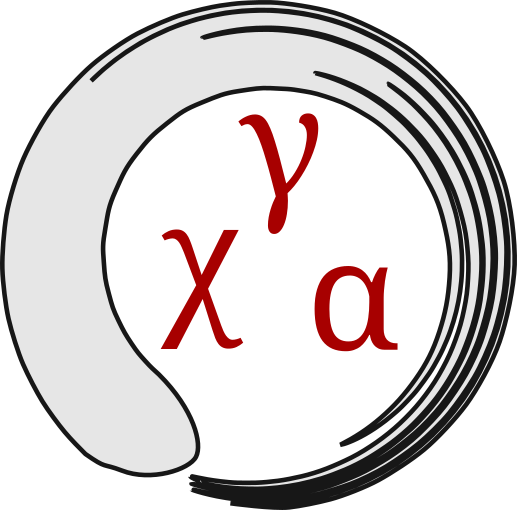Implementing a Pipe Syntax for std::optional - Part 1: Fundamentals
I set out to implement my high concept null conditional operator for std::optional and ended up with something significantly more low concept. Still, I did learn a lot about template metaprogramming and ran into some interesting pitfalls. Let’s see what I did in this multi-part series.
The Basics
If you haven’t read my first post on the subject it makes sense to do that now. Although we will not accomplish exactly what I set out to do, it makes sense to know where I was heading. Let’s first assume we want to apply a callable F:T\(\rightarrow\)U to an object of type std::optional<T>. We first assume that T and U are not void. We will deal with that case in the later parts of the series.
Note that I changed the operator from % (modulo) to | (pipe) in this post compared to the previous article.
Calling Any Callable
Before we get into the pipe operator itself we need to find a unified syntax to call any callable in C++. Surely it can be realised with templates1. But if we stop to think about how to call any callable using the same template syntax it gets tricky. Think, for example, how to pass in and call a member function on an object without the object.memberfunction() syntax. This is where C++17 alleviates us from going into the nitty-gritty details: we can just use std::invoke in the <functional> header. Here is how it can be used:
using std::string;
using std::cout;
using std::endl;
string str("test");
auto print = [](const auto & arg){cout << arg << endl;};
std::invoke(print, str);
//==> prints "test"
size_t size = std::invoke(&string::size, str);
cout << "size = " << size << endl;
//==> prints: size = 4
This seems a little complicated at first. Note, however, that we have used std::invoke to call a member function as well as a generic lambda using the same syntax. This is one piece of the puzzle that will come in very handy.
Finding the Return Type of A Callable
The next thing we need is to find the return type of a callable object of type F when applied to an argument of type T. This is what std::invoke_result is for. The helper type std::invoke_result_t<F,T> gives us exactly the desired return type.
A First Try
So now that we have the ingredients together, a first try of our optional chaining operator could look like this:
template<typename T, typename F>
auto operator|(const std::optional<T> & arg, F&& func)
-> std::optional<std::invoke_result_t<F, T>>
{
if(arg.has_value())
{
return std::invoke(std::forward<F>(func), *arg);
}
else
{
return std::nullopt;
}
}
The operator returns nullopt if the optional argument was empty. If the given optional is not empty, the callable is applied to the value inside the argument and an optional containing the result is returned. So the signature of the operator is operator|: const std::optional<T> &, F&&\(\rightarrow\)std::optional<U>, where U is the return type of the callable. This operator is already quite neat to use because it can be chained. Let’s look at an example.
Example Usage
Let’s say we are given an optional of type std::string that may or may not contain a value. We are (for some reason) interested in the square of the length of the contained string. This is how we can implement it using the pipe operator:
//lambda takes an argument and squares it
auto square = [](const auto & val){return val*val;};
//optional values of type string:
std::optional<std::string> optstr1 = std::string("Hello");
std::optional<std::string> optstr2; //empty;
//optionals of type size_t:
auto optsize1 = optstr1 | &std::string::size | square;
//==> optsize1 will contain value 5*5=25
auto optsize2 = optstr2 | &std::string::size | square;
//==> optisize2 will not contain a value
We arrive at the desired result by chaining the std::string::size member function and a generic lambda that squares its argument. The result is itself an optional of type size_t. It contains a value only if the initial argument contains a value. The pipe syntax allows for a neat way to chain operations on optional values. It relieves us of the responsibility of checking whether the intermediate results contain values before operating on them. However, there is (at least) one major issue with the implementation. It has to do with the return type. But before we have a look at that issue, let’s turn our attention to another thing. What kind of callables can the operator accept?
Signatures of the Callables
In my implementation above, I have accepted the optional argument by const reference. That means that the dereference (*) operator of the optional will produce a const reference, too. Thus, the callable func has to accept it’s argument either by const reference or by value. This relieves me of a lot of headaches, because the content of the given optional cannot be mutated by the callable. So the callable is pretty much forced to return its result by value to perform any kind of useful functionality. This again is very good, because optional references are ill-formed in C++2. In summary, the signatures of accepted callables can be func:const T&\(\rightarrow\)U or func:T\(\rightarrow\)U.
The Issue with the Return Type
The return type of the callable func is always wrapped in an optional. This is usually what we want, but it becomes a problem if the return type of func is itself an optional. Consider a callable func which returns std::optional<V>. Our operator will then return a nested optional, namely std::optional<std::optional<V>>. I’d rather have the operator return std::optional<V> because there is no information to be gained from nesting two optionals. So we have to unravel the return type somehow. In the next article we’ll see how to achieve this using bread and butter template metaprogramming techniques.

Comments
You can comment on this post using your GitHub account.
Join the discussion for this article on this ticket. Comments appear on this page instantly.